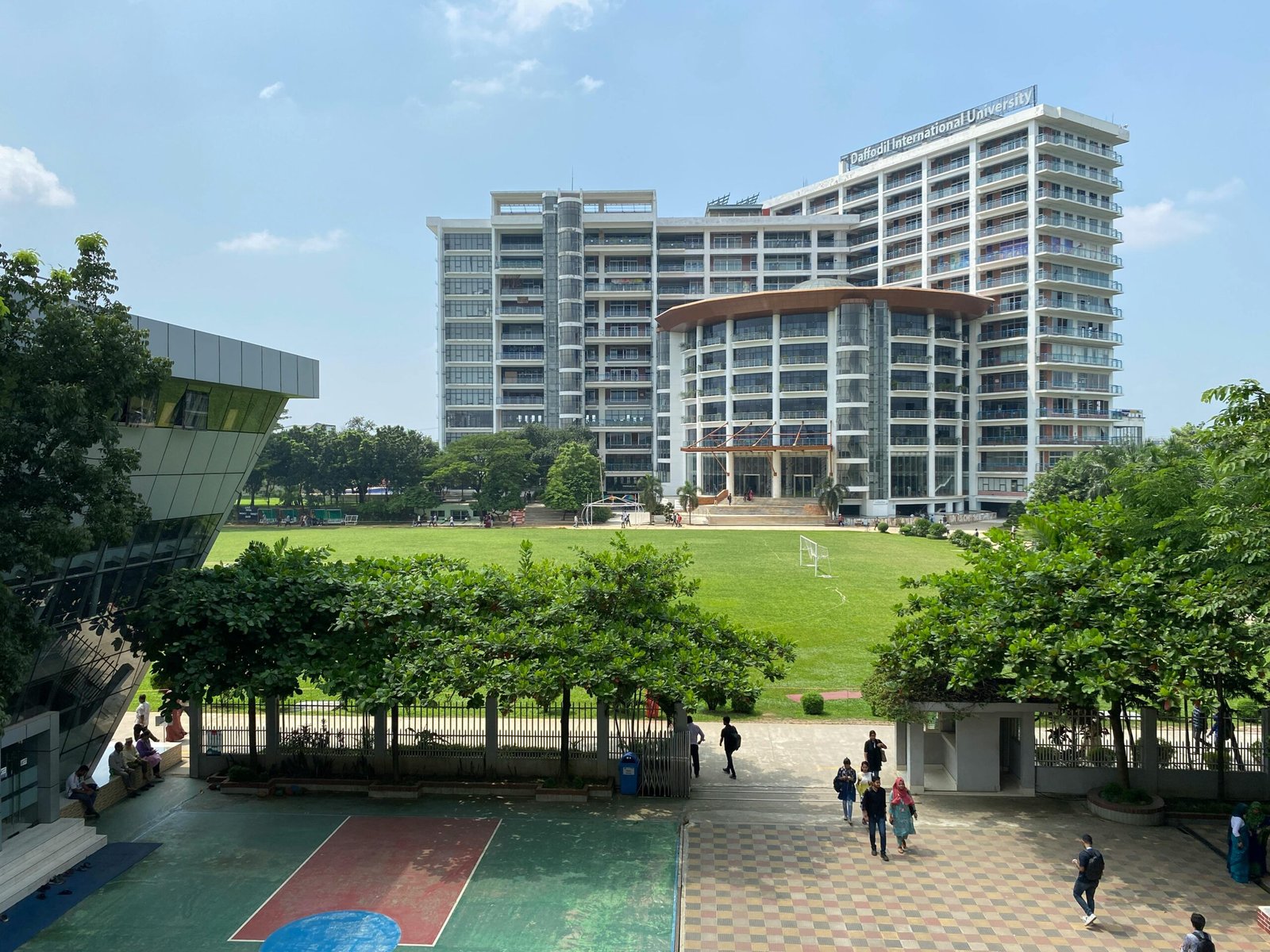
Hotel
At Hello LandMark, we specialize in identifying prime commercial land for hotel development.
Location Research
Determine the area you’re interested in. Consider factors like tourist attractions, accessibility, local demand, and competition.
Budget Planning
Determine your budget and financial capabilities for purchasing the land. Factor in additional costs like permits, utilities, and construction.
Engage a Real Estate consultancy
Find a reliable real estate agent with experience in commercial properties. They can help locate suitable land based on your requirements.
Zoning and Regulations
Ensure the land is zoned for commercial use and complies with local regulations for constructing a hotel.
Feasibility Study
Conduct a feasibility study to evaluate the potential profitability of the hotel on the chosen land. Consider market demand, projected expenses, and revenue.
Negotiation and Due Diligence
Once you’ve found a suitable plot, negotiate the terms with the seller. Conduct thorough due diligence, including land surveys, environmental assessments, and title searches.
Legal Assistance
Hire a real estate attorney to handle the legal aspects of the transaction and ensure all contracts and agreements are in your best interest.
Utilities and Infrastructure
Ensure the land has access to necessary utilities like water, electricity, and sewage systems. If not, calculate the costs and feasibility of getting them installed.
Financing
Secure financing for the purchase of the land and the subsequent construction of the hotel if necessary.
Closing the Deal
Once all terms are agreed upon, complete the purchase of the land through the legal process.
Remember, each step requires careful consideration and attention to detail to ensure a successful investment in commercial land for a hotel. Working with experienced professionals throughout the process is highly recommended.

Petrol Bunk
Hello LandMark, helps you identify the best locations for petrol bunks. We offer professional insights to maximize returns and ensure compliance. Turn your fuel station project into a successful landmark venture.
Location
Identify areas with high traffic flow, accessibility, and proximity to highways or major roads. Ensure the land is appropriately zoned for commercial use and complies with safety regulations.
Legal & Regulatory Compliance
Understand and comply with government regulations and safety standards set by authorities like the Petroleum and Explosives Safety Organization (PESO). Obtain necessary permits, licenses, and clearances for setting up a petrol bunk.
Land Acquisition
Engage with real estate agents or directly with landowners to identify suitable plots. Consider factors such as land size, shape, access to utilities, and proximity to residential areas.
Due Diligence
Conduct thorough due diligence, including land surveys, environmental assessments, and title searches to ensure the land is suitable for establishing a petrol bunk.
Infrastructure & Facilitie
Ensure the availability of essential infrastructure like electricity, water supply, drainage, and space for fuel storage tanks, pumps, and convenience stores.
Environmental Impact
Assess the environmental impact of the petrol bunk and ensure compliance with environmental regulations regarding fuel storage, handling, and disposal of waste.
Financial Planning
Consider the overall investment, including land purchase, construction costs, equipment, permits, and ongoing operational expenses. Secure funding or financing as needed.
Design & Construction
Plan the layout and design of the petrol bunk considering safety measures, traffic flow, and convenience for customers. Construct the necessary facilities according to regulatory standards.
Operational Considerations
Develop a business plan outlining operational aspects such as staffing, safety protocols, maintenance, and marketing strategies to attract customers.
Partnerships and Suppliers
Establish partnerships with fuel suppliers and distributors. Ensure reliable and legal procurement of fuel products.
Remember that setting up a petrol bunk involves stringent safety measures, compliance with regulatory norms, and adherence to specific guidelines. Working closely with legal advisors, industry experts, and regulatory bodies is crucial throughout the process. Additionally, each state in India may have its specific regulations regarding the setup of petrol bunks, so local laws need to be considered.
School
Starting a school in India involves various considerations, especially when acquiring land for the institution. Here are steps and considerations you might find helpful:


Location Selection
Choose a location considering factors such as accessibility, population density, demand for quality education, proximity to residential areas, and availability of amenities.

Land Acquisition
Acquire suitable land by either purchasing or leasing it. Verify the land’s ownership, titles, and any encumbrances. Consult legal experts to handle the legal aspects of the transaction.

Utilities and Accessibility
Ensure the land has access to utilities like water, electricity, sewage, and road connectivity. If these are not available, consider the costs and feasibility of getting them installed.

Environmental and Safety Factors
Consider environmental factors and safety measures when selecting the land. Ensure it’s free from risks like flooding, pollution, or other hazards.

Construction and Development
Once the land is acquired, proceed with construction and development of the school infrastructure according to regulatory standards and educational board guidelines.

Legal and Regulatory Compliance
Ensure that the land is suitable for educational purposes and complies with local zoning laws, regulations, and educational board requirements.

Land Size and Infrastructure
Determine the required land size based on the school’s planned capacity, infrastructure needs (classrooms, playgrounds, administrative buildings), and future expansions.

Feasibility Study
Conduct a feasibility study to assess the potential demand for the school in the chosen location. Analyze demographics, competition, and educational needs to ensure the viability of the project.

Budget and Financing
Estimate the costs involved in land acquisition, infrastructure development, and initial operations. Secure financing through loans, investors, or other sources if needed.

Educational Board Affiliation
Ensure compliance with the requirements of the educational board or accreditation body to get the school officially recognized.

Construction and Development
Once the land is acquired, proceed with construction and development of the school infrastructure according to regulatory standards and educational board guidelines.
Starting a school requires meticulous planning, compliance with regulations, and a clear understanding of the educational market in the chosen area. Consulting with legal experts, educational consultants, and experienced professionals in school administration can be beneficial in this process.

College
Starting a college in India involves several steps and considerations, especially when it comes to acquiring land. Here’s a general outline:

Regulatory Compliance
Understand the regulations and requirements set by educational authorities in India, such as the University Grants Commission (UGC) or the respective state’s education department. Compliance with regulations regarding land size, infrastructure, and other criteria is essential.

Location Selection
Choose a suitable location considering factors like accessibility, proximity to urban areas, transportation facilities, and availability of amenities. Ensure the area is conducive to educational activities and meets regulatory requirements.

Land Acquisition
Acquire suitable land based on the requirements prescribed by educational authorities. This may include a specific land size, infrastructure standards, and zoning regulations.

Legal Procedures
Complete all legal procedures for land acquisition, including due diligence, title verification, and acquiring necessary approvals and permissions from local authorities.

Infrastructure Development
Develop the infrastructure required for a college, including academic buildings, administrative offices, classrooms, laboratories, libraries, sports facilities, hostels, and other amenities.

Financial Planning
Plan the budget for land acquisition, construction, infrastructure development, faculty recruitment, and operational expenses. Consider financing options like loans, grants, or partnerships.

Regulatory Approval
Obtain necessary approvals from educational regulatory bodies and government authorities to establish and operate the college legally.

Staffing and Curriculum
Recruit qualified faculty members and staff. Develop a curriculum that complies with educational standards and meets the needs of students.

Marketing and Promotion
Develop a marketing strategy to attract students. Highlight the unique aspects, courses offered, infrastructure, and facilities of the college.

Launching and Operations
Once all preparations are complete and approvals obtained, launch the college and commence operations.
Starting a college involves meticulous planning, adherence to regulations, and substantial investment. Engaging with legal experts, education consultants, and experienced professionals can be beneficial in navigating the complexities of establishing an educational institution in India.
Show Room
Setting up a startup showroom in India can be an exciting venture. Here are steps and considerations to help you get started:

Market Research
Understand the market demand and preferences for the products/services you intend to showcase in your showroom. Analyze your target audience, competitors, and market trends.

Business Plan
Develop a comprehensive business plan outlining your objectives, target market, product range, pricing strategy, marketing plan, and financial projections.

Legal Structure and Registrations
Decide on the legal structure of your business (sole proprietorship, partnership, private limited company, etc.) and complete the necessary registrations and licenses required to operate a showroom in India.

Location Selection
Choose a prime location that aligns with your target market and offers good visibility and accessibility. Consider foot traffic, parking facilities, and proximity to complementary businesses.

Store Layout and Design
Design an attractive and functional showroom layout. Consider the interior design, display arrangements, and ambiance that best represent your brand and products/services.

Supplier Selection and Inventory
Identify reliable suppliers or manufacturers for your products. Establish partnerships or procure inventory that meets quality standards and resonates with your target audience.

Technology Integration
Incorporate technology for operations and customer experience, such as point-of-sale systems, inventory management software, and an online presence (website, social media).

Staffing and Training
Hire and train staff members who understand your products/services and can provide excellent customer service. Focus on product knowledge, sales techniques, and customer engagement.

Marketing and Promotion
Develop a marketing strategy to create awareness and attract customers. Utilize online marketing, social media, promotions, and collaborations to drive traffic to your showroom.

Customer Experience
Focus on delivering an exceptional customer experience. Provide a welcoming environment, personalized service, and after-sales support to build customer loyalty.

Compliance and Regulations
Ensure compliance with local business regulations, tax obligations, labor laws, and any specific industry standards or certifications required.
Starting a showroom involves careful planning, understanding the market, and providing an excellent customer experience. It’s essential to adapt and evolve your strategies based on market feedback and changing consumer preferences.

Hospital
Acquiring land for a hospital in India involves several steps and considerations due to regulatory, zoning, and operational requirements. Here’s a general guide:

Location Research
Identify a location based on factors like accessibility, demographics, proximity to residential areas, availability of utilities, and potential demand for healthcare services.

Zoning and Regulations
Ensure the selected land is zoned for healthcare or commercial purposes. Verify compliance with local regulations, building codes, and healthcare-specific guidelines set by authorities like the Health Department.

Land Size and Infrastructure
Assess the size of land needed for the hospital considering the intended size and facilities. Ensure the availability of necessary infrastructure like water, electricity, road access, and sewage systems.

Accessibility
Consider transportation access for patients, staff, and suppliers. Proximity to major roads, public transport, and emergency services can be crucial.

Environmental Assessment
Conduct an environmental impact assessment to ensure the land doesn’t pose significant environmental risks or constraints for a hospital setup.

Legal Due Diligence
Perform legal due diligence, including land title verification, ownership history, any encumbrances, and potential disputes related to the property.

Negotiation and Acquisition
Negotiate the purchase or lease terms for the land. Engage legal experts to handle contracts and agreements.

Government Approvals
Obtain necessary approvals from local municipal authorities, health departments, and other regulatory bodies before commencing any construction or development.

Infrastructure Development
Develop the land or construct the hospital infrastructure, considering the hospital’s layout, specialized facilities, parking, and landscaping.

Technology and Facilities
Plan for advanced medical technology, equipment procurement, and facilities required for healthcare services, ensuring compliance with healthcare standards.

Community Engagement
Engage with the local community to address any concerns and build goodwill. Hospitals often benefit from community support.

Operational Planning
Develop a detailed operational plan encompassing staffing, management, services offered, partnerships with healthcare providers, and marketing strategies.
Navigating through these steps will require collaboration with legal experts, real estate professionals, architects, healthcare consultants, and government authorities to ensure a smooth acquisition and setup process for a hospital in India.
Ware House
Acquiring land for a warehouse in Tamil Nadu involves several steps. Here’s a guide:

Location Selection
Choose a location considering proximity to transportation hubs, major roads, ports, or industrial zones. Access to highways and railways is essential for logistics.

Zoning and Regulations
Verify that the chosen land is zoned for industrial or commercial use. Check local regulations, building codes, and zoning laws related to warehousing.

Land Size and Infrastructure
Assess the required land size based on the warehouse’s capacity and operations. Ensure the availability of essential infrastructure like access to roads, electricity, water, and connectivity for communication.

Accessibility
Consider accessibility for trucks and transportation vehicles. Proximity to major highways or ports can facilitate easy movement of goods.

Environmental Considerations
Conduct an environmental assessment to ensure the land is suitable for warehousing activities and complies with environmental regulations.

Legal Due Diligence
Verify land titles, ownership history, any existing liens, encumbrances, or legal issues related to the property. Engage legal professionals to handle documentation and agreements.

Negotiation and Acquisition
Negotiate terms for purchase or lease of the land. Finalize the agreement, ensuring all conditions are clear and agreed upon.

Government Approvals
Obtain necessary approvals from local authorities and government bodies for land use, construction, and zoning changes required for warehouse development.

Infrastructure Development
Develop the land or construct the warehouse infrastructure according to industry standards, including storage spaces, loading docks, security features, and administrative areas.

Utilities and Facilities
Ensure availability and connectivity to utilities like electricity, water, and telecommunications. Consider facilities like parking, security, and firefighting systems.

Operational Planning
Plan for operational logistics, staffing, security measures, and maintenance schedules for the warehouse.

Risk Assessment
Evaluate potential risks related to location, natural calamities, or market fluctuations, and devise mitigation strategies.
Working with real estate agents, legal advisors, and construction professionals familiar with local regulations and practices will be beneficial in navigating the complexities of acquiring land and setting up a warehouse in Tamil Nadu.

Food Street
Acquiring land for food courts in Tamil Nadu involves strategic planning and adherence to specific requirements. Here’s a step-by-step guide:

Location Selection
Identify high-traffic areas or commercial zones in cities or towns. Proximity to shopping centers, entertainment hubs, business districts, or educational institutions can be beneficial for a food court.

Land Size and Layout
Determine the size of land needed for the food court based on the number of food outlets, seating capacity, parking requirements, and additional facilities like restrooms and common areas.

Environmental and Health Regulations
Adhere to environmental and health regulations set by local authorities. Ensure compliance with hygiene standards and waste disposal requirements for food establishments.

Negotiation and Acquisition
Negotiate terms for the purchase or lease of the land. Finalize agreements with clear conditions regarding usage, duration, and any additional clauses necessary for operating a food court.

Infrastructure and Construction
Develop the land or construct the food court infrastructure, including spaces for individual food outlets, seating arrangements, common dining areas, kitchens, restrooms, and utilities.

Marketing and Branding
Develop a marketing strategy to promote the food court once operational. Consider branding, advertising, and collaborations to attract food vendors and customers.

Zoning and Regulations
Verify that the selected land is zoned for commercial or mixed-use purposes, allowing food court operations. Understand local zoning laws, building codes, and regulations regarding food establishments.

Accessibility and Visibility
Ensure easy access for customers and visibility from main roads or prominent areas to attract foot traffic. Consider parking facilities and ease of entry and exit for vehicles.

Legal Due Diligence
Conduct a thorough check of land titles, ownership, any existing liens, encumbrances, or legal issues related to the property. Engage legal experts to handle documentation and agreements.

Government Approval
Obtain necessary approvals from municipal or local authorities for land use, construction, and licensing required for food service operations.

Amenities and Services
Ensure availability of utilities such as water, electricity, proper ventilation, waste management, and amenities like Wi-Fi, security, and adequate lighting.

Operational Planning
Plan operational logistics, vendor management, staffing, menu variety, and customer service for a successful and sustainable food court operation.
Collaborating with real estate professionals, legal advisors, architects, and construction experts familiar with local regulations and market trends will facilitate the process of acquiring land and establishing a food court in Tamil Nadu.



